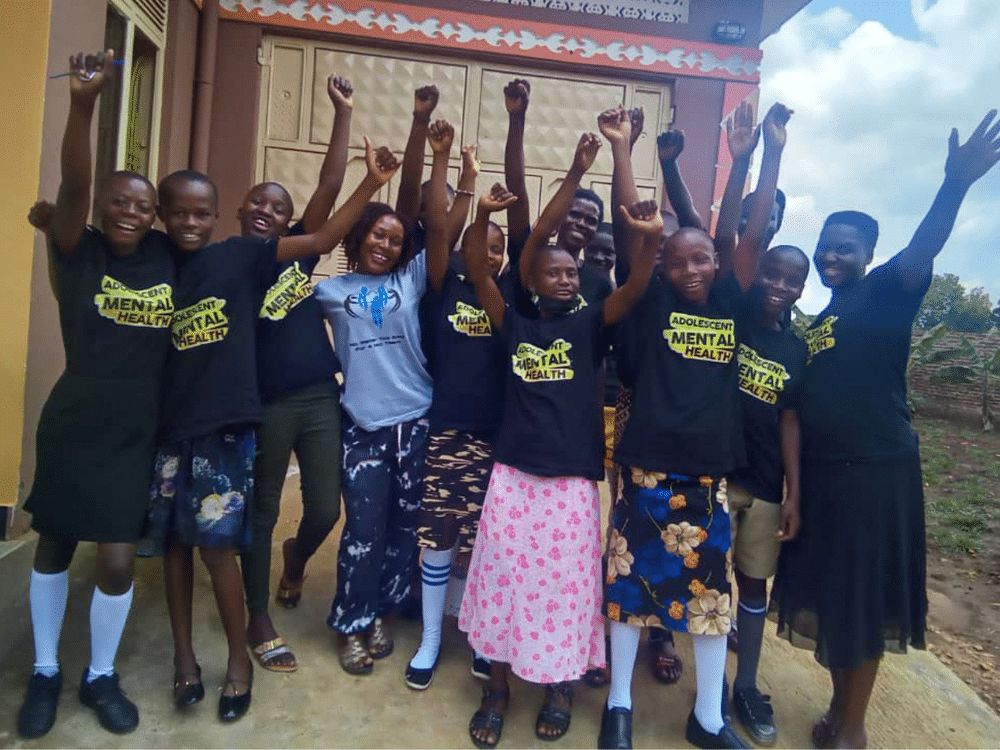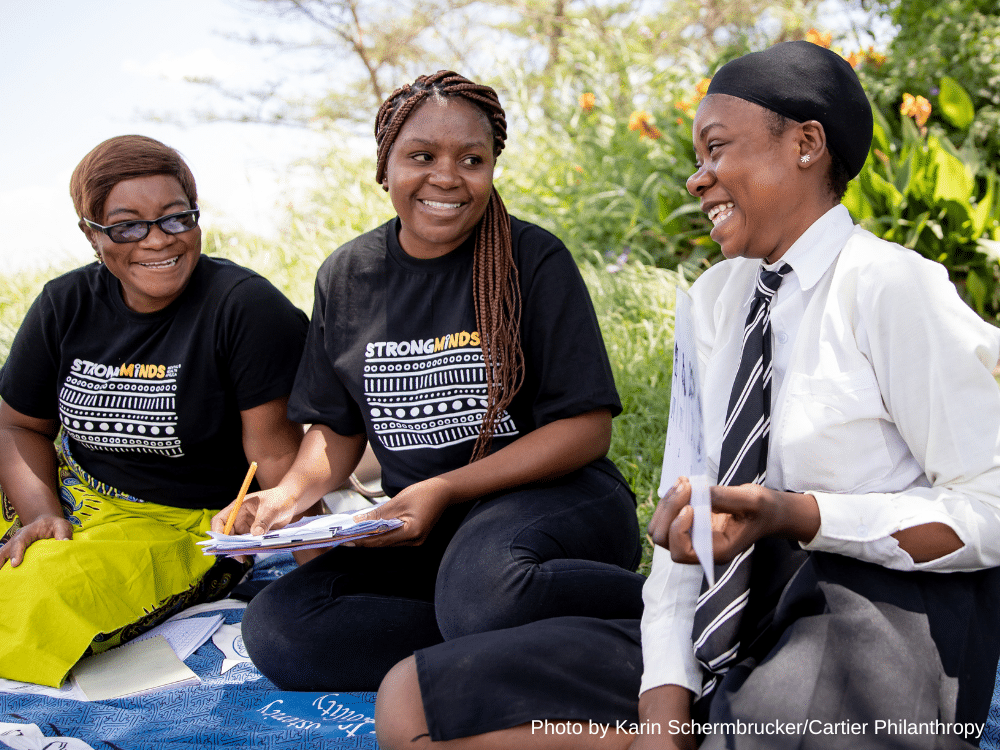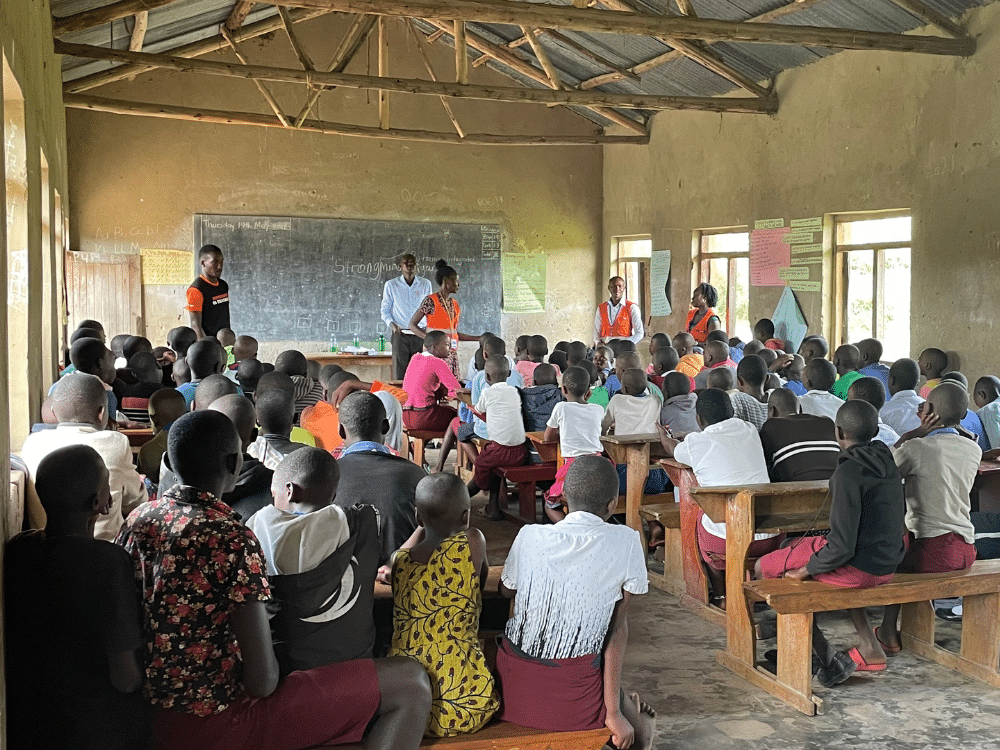Mental Health and Education
Improving educational outcomes for adolescents through schools-based depression treatment.

What We Are Doing
StrongMinds partners with the Ministries of Education in Uganda and Zambia to integrate our group talk therapy model into schools nationwide. Our model was created with input from adolescents and deploys specific tools to support the social-emotional learning and development of this age group.
We train teachers to identify and treat depression among the students they serve. Through psycho-education, training, and therapy delivery, teachers see improved school performance and behavior, while students experience improved mental health and greater investment and hope for their futures.
In Uganda, we worked with the Ministry of Education and Sport to create Mental Health Hour, a national program that requires all public schools to devote an hour each week to mental health education and support.
In Zambia, we are working with the Ministry of Education to roll out school-based adolescent mental health care across the country.
One quarter of adolescents in sub-Saharan Africa experience depression or suicidal thoughts.
Depressive disorders can lead to poor school performance, chronic absenteeism, and higher dropout rates among adolescents.
Half of all mental health disorders start by age 14, yet most are undetected and untreated.
40% of Africa’s population is under the age of 15.
Adolescent Well-Being
63%
of students who received therapy saw improved grades after treatment.
4.6
more days of school attended, on average, over a 12-week term.
86%
of teachers trained as IPT-G facilitators strongly agreed that it made them better teachers.
42%
of sexually active adolescents began using contraceptives.
10%
of girls who had previously dropped out of school re-enrolled after therapy.
96%
of adolescents reported feeling more hopeful about life.
“Losing my father was something I never saw coming. He was my best friend. It caused so much pain, and I did not know how to cope. I thought the feeling would never go away, [but with therapy] I was equipped with skills that helped me treat my depression. I learned how to accept my new situation and look to the future again. I can now stand strong after receiving support from my mentor and group.” – Joy, 17

Learn about our depression treatment model.
Teachers as Mental Health Care Providers
Teachers play a crucial role in the treatment of depression in adolescents. In Uganda, we are training teachers to lead adolescent therapy groups in schools as a way to scale access to mental health care for adolescents who might not otherwise have access. This task-shifting approach ensures that more young people can receive essential depression treatment, while also providing teachers with skills and knowledge that help them improve classroom dynamics.
Teachers report that our facilitator training has helped them embrace a “whole child” approach to teaching, helping them understand how conditions at home can affect students’ learning and behavior at school.
Teachers brought their new mental health knowledge and communications skills into the community as well, destigmatizing depression and leading to a more knowledgeable and empowered community.
Support improved educational outcomes through good mental health.







